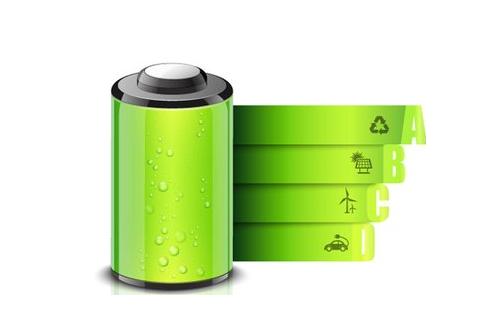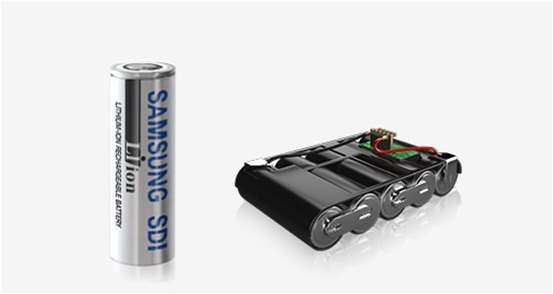What To Do With Old Lithium Batteries
Sep 24, 2019 Pageview:1860
There are so many battery types in the world today. However, none of any other chemistries is as popular as lithium batteries. These are the type of batteries with the most power and capacity. For this reason, we have witnessed a huge increase in production and use.
The demand has kept increasing. Almost every portable electronic device today uses a lithium battery. From phones to cameras, laptops to tablets, and EVs to military equipment, lithium batteries are in every field.
However, these batteries degrade too. As much as they are very powerful and loved by many people, they don’t last forever. The general lifespan of such a battery is three years. And this includes even those on the shelf. In simple terms, they begin losing value the moment they leave the factory.
So there are then so many batteries. As some get old, others are being produced to replace them. But have you ever wondered where the old ones go? Or a better question is, what should you do with your old lithium batteries? Keep reading.
What happens to an old lithium-ion battery?
For you to get this clear, we are going to use an application case as our point of reference. In this, we are going to use the rising battery power for Electric vehicles.
There is no denying that EVs are becoming more and more common on our roads today. They are here to stay. Consider what is happening across the glove with the inclination of the industry, consumers, and governments. As if that is not enough, there is clear evidence in the automobile sectors. All evidence indicates the industry is going to swell with manufacturers producing EVs.
But is this a good or a bad thing? The demand for batteries has gone high. And each new model that comes on the market seems to have better features than the previous one. You can’t, therefore help but wonder where they all go after.
You, lithium batteries are not all perfect and safe. They are dangerous. Consider:
· Environment. If left exposed, the chemicals inside can combine the air around and cause harm to it. They can also get into the soil and affect plants. As we move toward green energy, we want to ensure our environment is safe from human mistakes. Throwing away lithium batteries is not a good idea.
· They are hazardous. Have you ever traveled with lithium batteries? You will get in trouble with the airport security is you have not well packaged and labeled them. For a start, they must be kept in safety containers and labeled hazardous. These batteries can easily explode and cause disasters. Homes have been burned, and planes brought down because of such simple mistakes.
· Swollen batteries. Swollen or damaged lithium batteries are very dangerous to have around. You don’t want them roaming around everywhere because if the inside gets exposed to air, or stay near flammable material, they can easily start a fire.
Most of the problems arising from such items are how they are discarded. The chemical composition is meant to degrade the natural medium in which they are thrown.
It is our responsibility as users to make sure this never happens. Instead, or waiting until the problem grows out of control, the golden rule for taking advantage of ‘Re-use’ can be applied. So here is what can happen.
· Put in other uses. Once batteries have EVs come down to 70% of its original energy, it is considered unfit to for the vehicles. But that does not mean they will have completely lost use. Other staff like power storage systems for renewable energy sources can still use the batteries. For instance, they are used with solar panels.
· The batteries are recycled. EV batteries, in this case, may be too high-end to be used for home solar appliances. Therefore, the batteries are recycled and brought back to the market to be used as new.
· Disposing. There are companies with are experts in getting rid of lithium batteries. They are fully licensed and have the important tools to carry out the activities.
Whatever you do, never throw away lithium batteries with normal garbage. The safety of your environment is with you.
What do we do with old lithium batteries?
There are many ways to deal with these batteries. Here are a few major approaches that are safer.
Send to collectors
Check-in your neighborhood or online if there is a dealer that handles lithium batteries. There must be one of two who are always ready to help. And once you have identified them, simply drop them there and leave the rest to them. This is the easiest way; just ensure you have packaged them in safety bags.
Consider recycling
Once you realize is your battery is not as strong as it is supposed to be, recycle them. But you cannot do this in the normal way you do with our blue recycling bin. As stated above, the contents can be toxic to the environment. The good news is lithium-ion batteries are easier to recycle because they are not as toxic as others.
First, you can take your old cell phone, computer or tablet to a recycling center near you. They can recycle batteries of all sizes and shapes.
If you must do this yourself, there are a few things to keep in mind. Ensure the batteries are deeply discharged before taking any action. It is vital to the environment that the contents are completely inactive.
Is old lithium battery dangerous?
The simplest answer here is yes. However, it depends on the status of the batteries. Perhaps you have seen on videos somewhere a garbage track moving with smoke coming out from the back. Somebody may have thrown out lithium batteries with active components. Swollen or damaged ones are the most dangerous.
The components are considered hazardous and will degrade into their constituent elements. Some of them are toxic and easily poisons everything around them. Stay safe by disposing of lithium batteries safely.
- Prev Article: How long do Lithium Polymer Batteries Last?
- Next Article: Discharge Characteristics of Lithium Ion Batteries
Leave Message
Hottest Categories
-
Hottest Industry News
-
Latest Industry News











